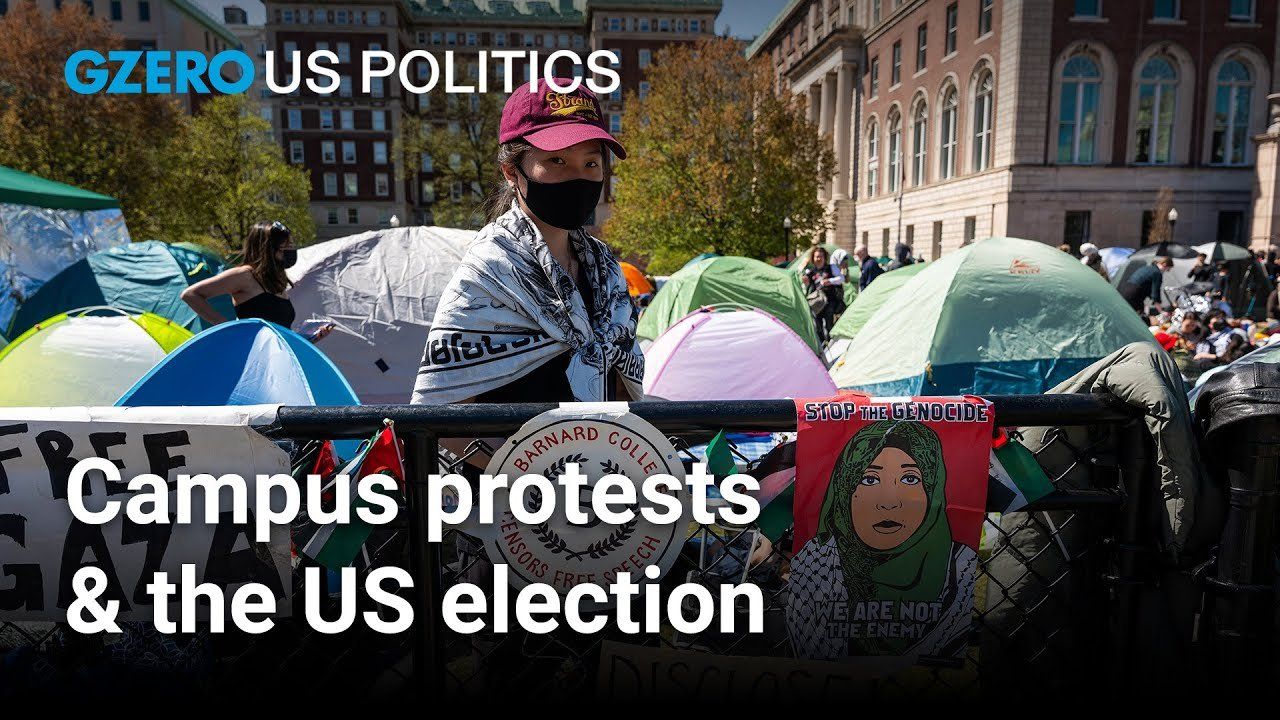US Politics In 60 Seconds
How campus protests could influence the US presidential election

TITLE PLACEHOLDER | GZERO US Politics

Jon Lieber, head of Eurasia Group's coverage of political and policy developments in Washington, DC, shares his perspective on US politics.
This is what we are watching in US Politics this week: Campus protests.
They're happening everywhere. Elite schools, state schools, the Northeast, the Midwest, Southern California, campus protests are a major story this week over the Israeli operation in Gaza and the Biden administration's support for it. These are leading to accusations of anti-Semitism on college campuses, and things like canceling college graduation ceremonies at several schools.
Will this be an issue of the November elections?
Really difficult to say. Everyone remembers in 1968, massive protest at the Democratic National Convention, contributing to President Nixon's message that he was the “law and order” candidate, and the Democrats didn't have control. That could easily be repeated this year if the protests continue and are sustained into August at the Democratic Convention in Chicago, where it also was in 1968. And then, if the protests continue on campus once again, when schools come back in in the fall, right before the November elections.
One thing we're watching is how Donald Trump tries to spin these things. A key campaign message that he's been pushing so far, this cycle, is that everything they're saying about him are the things they're actually doing. They thought he would get the US into a war with Iran, and now President Biden came right up to the verge of that last week. They say, “He's the chaos candidate,” and now you've got wars all over the globe, you've got campus protests, you've got a spike in crime, and you've got a massive immigration problem under President Biden.
So, that message is going to be one that Donald Trump continues to push and will definitely resonate with Republican voters and could potentially resonate with independent voters if the large-scale protests and clashes with police continue into the fall.
Think you know what's going on around the world? Here's your chance to prove it.
In this episode of "ask ian," Ian Bremmer breaks down two high-stakes negotiations in Geneva: Russia-Ukraine and indirect US-Iran talks, calling both “underwhelming” with little progress.
In an era when geopolitics can feel overwhelming and remote, sometimes the best messengers are made of felt and foam.